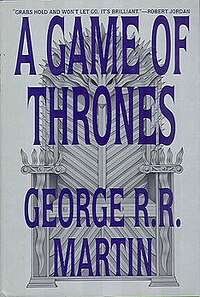 Slaughterhouse-Five by Kurt Vonnegut
Slaughterhouse-Five by Kurt VonnegutDelacorte - 1969
186 pages
Kurt Vonnegut's absurdist classic Slaughterhouse-Five introduces us to Billy Pilgrim, a man who becomes unstuck in time after he is abducted by aliens from the planet Trafalmadore. In a plot-scrambling display of virtuosity, we follow Pilgrim simultaneously through all phases of life, concentrating on his (and Vonnegut's) shattering experience as an American prisoner of war who watches the firebombing of Dresden.
Honestly, at first, I was a little confused reading this novel. That's because chapter one is more like an introduction to the novel, where Vonnegut describes how he poured his life into this novel, but it was truly terrible and jumbled. Vonnegut inserts himself into two more situations, one where he is suffering the consequences of food poisoning and suggests that his brains may be coming out, and again where he says "Oz" as the characters are going to Dresden.
That being said, once it got into the actual novel, it turned wonderful. I was glad to see that it was supposed to be funny, because there were times I disturbed people around me with my laughing. For example, the protagonist Billy Pilgrim is reading the Bible and thinks that the message of the Gospels is: "If you are going to kill someone, make sure it is someone who is not well-connected."
In the beginning, I felt that Slaughterhouse-Five was a little too jumpy with the time-travelling, going from World War II to Pilgrim's childhood to visiting his mother in the nursing home in spans of only a few paragraphs, but then it finally levelled out to focus mainly on its topic: the firebombing of Dresden in World War II.
While I was a bit hesitant to pick up World War II fiction, as it's not exactly my favorite period of historical fiction (that one's actually tough: maybe Black Death in England, the Industrial Revolution, World War I, or Anglo-Saxon times), it is easily wonderful.
Grade: A-








